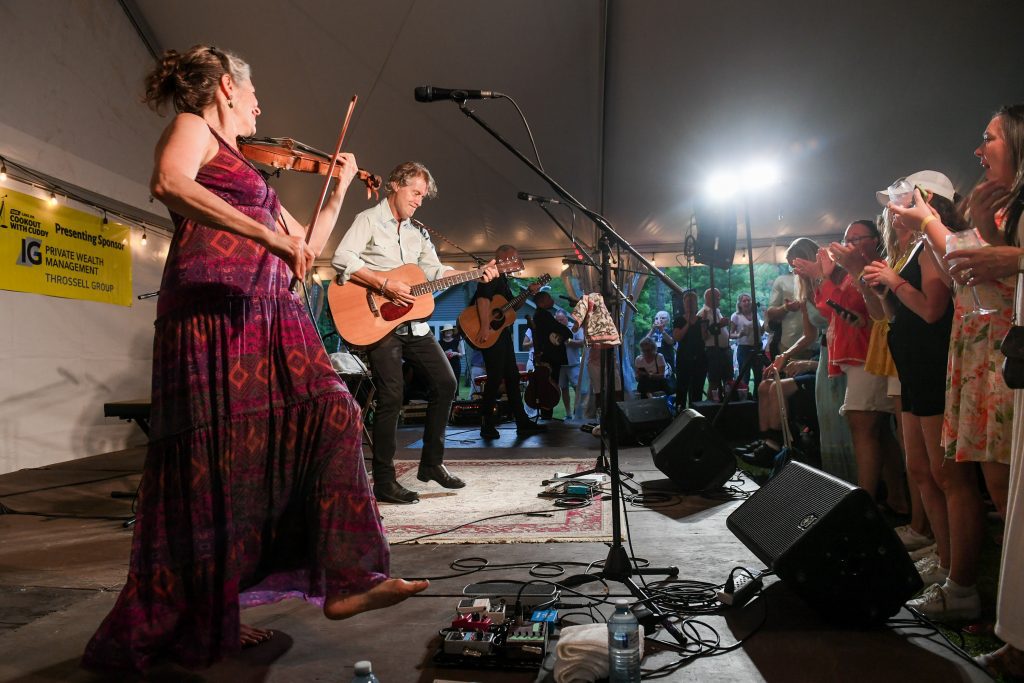- Review your wrap up
If you have had the pleasure of producing an event for multiple years then likely there will be a post evaluation meeting or wrap up notes taken following an event. This is an essential part of the event process and it is really important to do this while the event is fresh in your head. Often wrap up notes will focus on successes of the event and areas of improvement with a committee however I always have more detailed notes with my team about specific supplier interactions, event activations, event flow, timing, successes and any areas we can improve on. This is always the best place to start when planning an event as it will remind you on where you need to develop new strategies and what successes you should repeat.
2. Do not sweat the small stuff.
Event planning is one of the most stressful careers you can have. Managing your stress in this industry is vital. Details are an important part of creating a unique experience for guests but we have to remember that only the planning team knows exactly how things are supposed to play out. Flexibility in this industry is key to survival and some things are ultimately out of your control. If your speaker ends up in traffic , your emcee has covid or there are tornado warnings during your event (all things that happened to me this year) …these things are out of your control and stressing about them will only make your change in plans more challenging. I have learned to try not to sweat the small stuff and understand that I cannot control everything…especially the weather.
3. Never Assume
This is one of the greatest lessons you can learn as a planner. Never assume anything. I always like to clarify and more often than not I am happy I did. Not assuming leaves less room for errors which can easily cause a ripple effect in events. Do not assume is likely the most repetitive sentence that I say to my team.
4. Expect the unexpected
It is our job as planners to anticipate the unexpected but this is not always easy. Events rarely go “perfect” there are always factors that come into play which force elements of the event to pivot. Beyond having back up plans there should always be room for the unexpected. I love to overstaff, have back up rentals on hand, assign key bodies in the room who can take on leadership roles or assist, bring supplies to reprint, etc. Anything that will help you to react or be proactive when the unexpected happens. I always say “You don’t know what you know till you know it.”
5.Create tangible event goals
Where feasible, looking at the event history helps you to develop event targets and tangible event goals as a team. These could be in the way of attendance goals, financial sponsorship goals, number of vendors or exhibitors, increase in social media engagement, economic impact or attendee satisfaction to name a few. In order to create tangible goals, there must be measuring tools in mind to determine where you are at in meeting those goals. Keeping records from year to year of your goals will help the team work towards a mutual goal. For example track your ticket sales each day and send an update to the team. This will give you an indication if tickets are selling slower or equal to last year and know when your registration peaks so3 you can increase your marketing efforts during this time. Having tangible goals will help you determine if the event is on target and celebrate your successes following the event.
6.Consolidate your thoughts
When you are in the planning process it is so easy to be reactive and respond to requests and emails as they come in but that does not benefit anyone. It overloads our inbox with emails and leaves too much room for information being lost and confusion. Instead start each day with a blank note, google doc or draft email for key people that you need to communicate with in the planning process. As the day goes on try and add all thoughts consolidated into one email and always remember to change the email header so it is easy to find afterwards if needed.
7. Focus your energy on the Important decisions.
In preplanning or during an event there are countless decisions an event planner has to make and sometimes It can be overwhelming. Try and focus your energy each day on the really important decisions that will have the greatest impact of the event. Sometimes some of the smaller details and decisions will have to be made by your competent team while you are dealing with larger decisions that will impact things like the safety of your guests. Once the large decisions are made it will allow more time to put towards the details and I love details! It is more enjoyable to focus on the smaller items once you know the big decisions are made.
8. Always be 5 steps ahead
I had a client early in my career who always kept me on my toes and my mission became to always be 5 steps ahead of her. Anytime she asked me a question I wanted to be able to say “already complete”. This allowed me to not feel reactive and to be proactive and therefore feel in control of the planning process. As a planner you have to always be on top of planning and pre anticipating questions, challenges and changes. A few examples follow: I end all of my suppliers confirmation details a week before the event with a FAQ so I am not answering small details in the final days of planning. These emails usually trigger questions and allow us to work through the last minute logistics in advance. If I have an outdoor event I schedule doors open minimum one hour in advance of the advertised time backing everything up by one hour including load in etc. Immediately following an event. I update my files with things I would like to change or at least ensure they are noted in my wrap-up. That way the next year when I review my contracts, specs, production schedules etc they will be current and based on my learnings from the year prior. Knowing my client will request a wrap up meeting, I write my notes during the event while they are fresh in my head. Not leaving planning to the last minute allows for space and time to deal with last minute changes. The more you plan in advance, the more there is room to change plans as needed.
9. Start your day off with a smile
I like to start the day off with something silly like the team recording a tik tok dance or coming up with a secret handshake that we do throughout the day. Events can be stressful but they also should be fun. Finding ways for your team to have stress relievers, celebrate and laugh makes for a stronger team. This sets the tone for us to start the day with positive energy. I also like to end with a team celebration dinner or get together to debrief but in a relaxed environment and take the time to recognize all of the wins.
10.Celebrate your successes
One of the frustrating things about events is people tend to remember what went wrong and not what went perfectly. I find that we are too quick to focus on the areas that need improvement and not celebrate successes. Creating tangible event goals will help create areas of achievement for the team.
As event planners we are the jack of all trades. I have found that keeping these 10 lessons in mind will help to create smoother, less stressful and more rewarding events.
Michelle Planche, CMP
President, Paradigm Events



